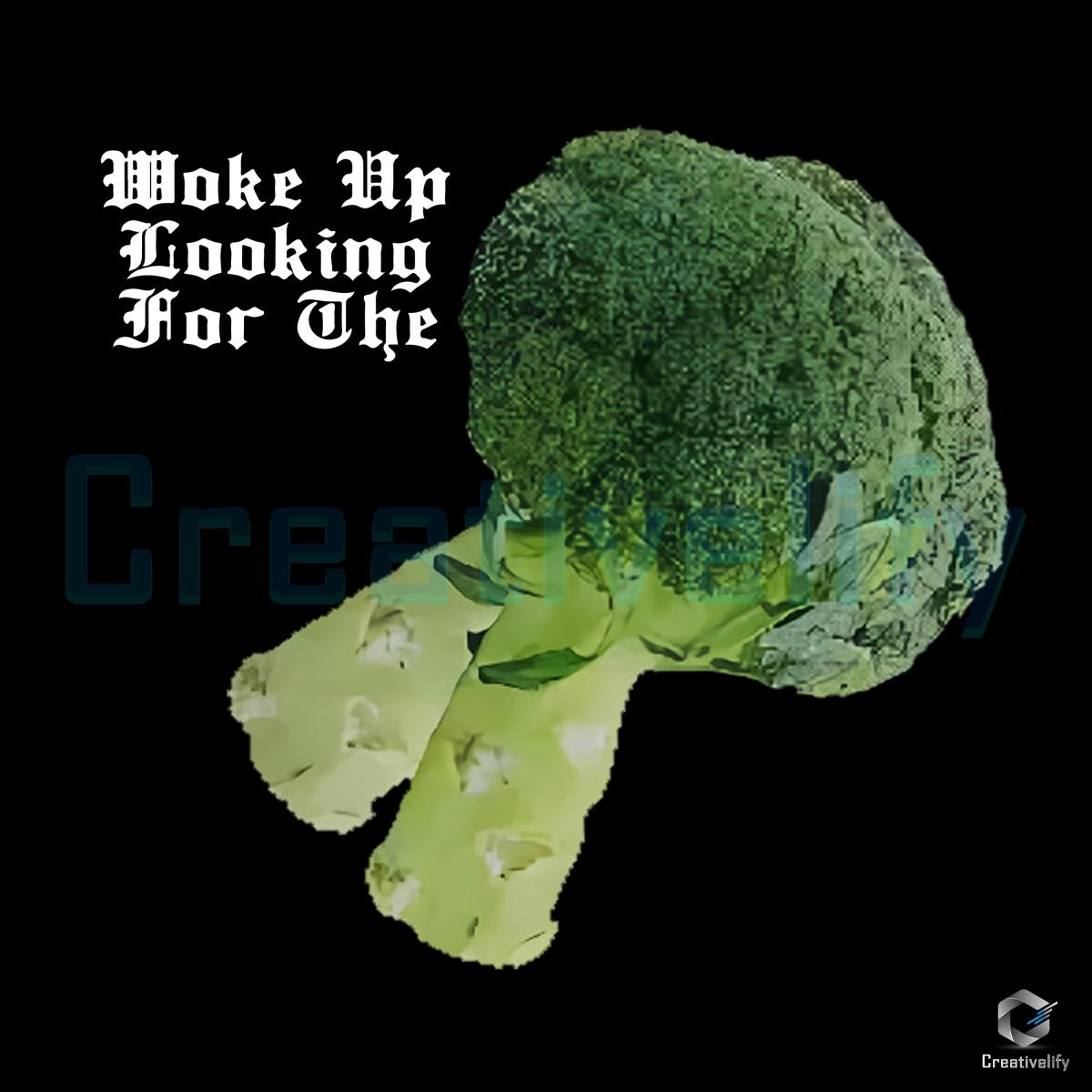Woke Up Looking For The Broccoli: Navigating The Complexities Of The Term 'Woke'
Imagine waking up one morning with a sudden, inexplicable craving for broccoli. Not just any vegetable, but broccoli – the green, often misunderstood, yet undeniably nutrient-packed cruciferous friend. This isn't about diet, though. It's a metaphor for something far more complex: the modern-day quest to understand the term "woke." In a world saturated with information, where words are weaponized and meanings distorted, many of us find ourselves metaphorically "waking up looking for the broccoli" – searching for the genuine, unadulterated substance behind a term that has become unavoidable on the campaign trail and in everyday conversation.
The word "woke" has transcended its origins, evolving from a specific warning to a catch-all phrase, often laden with judgment. But what does it really mean, and where does it come from? To truly understand it, we must peel back the layers, much like preparing a head of broccoli, to reveal its core nutritional value and historical roots.
What "Woke" Really Means: Beyond the Buzz
At its heart, the definition of "woke" is surprisingly straightforward, especially when we consult a dictionary. It is now defined as “aware of and actively attentive to important facts and issues (especially issues of racial and social justice).” This definition emphasizes a state of heightened consciousness, a deliberate engagement with realities that might otherwise be overlooked or ignored. It implies an active awareness, not just a passive understanding, of systemic inequalities and historical injustices.
This core meaning suggests a commitment to understanding the world as it truly is, acknowledging the often uncomfortable truths about power dynamics, privilege, and marginalization. It's about opening one's eyes to the societal structures that impact different groups of people, particularly those who have historically been oppressed or disadvantaged.
The Roots of "Woke": A Journey Through History
To fully grasp the essence of "woke," we must journey back to its origins. The word has a long and serious history in Black culture, deeply embedded in African American Vernacular English (AAVE). Initially, “woke” began in black vernacular as a warning to be wary of racism. It was a call to remain vigilant, to be "awake" to the subtle and overt forms of discrimination and prejudice that Black individuals faced daily. This was not merely about being informed; it was about survival, a collective understanding that one needed to be constantly aware of the surrounding racial landscape to navigate it safely and effectively.
This historical context is crucial. The term emerged from a community that needed a shared language to articulate and protect itself against pervasive societal threats. It was a term of empowerment, a signal to fellow community members to stay alert and discerning in a world that was often hostile or indifferent to their experiences. This deep-seated historical significance is often lost in contemporary discourse, leading to a profound misunderstanding of the term's original intent and power.
From Awareness to Abuse: How "Woke" Evolved
The journey of "woke" from a specific cultural warning to a mainstream, often controversial, term is fascinating and complex. It was adopted by liberal social justice advocates during the Black Lives Matter and Me Too movements in 2020. This adoption marked a significant turning point, as the term gained broader visibility and began to be applied to a wider range of social justice issues beyond racial awareness, including gender equality, LGBTQ+ rights, and environmental justice.
However, as "woke" moved into the mainstream, its meaning became diluted and, in many cases, weaponized. Typically, “wokeness” and “woke ideology” are terms of abuse, used against a variety of practices that, despite their diversity, have a similar character. These practices often involve advocating for marginalized groups, challenging traditional power structures, or promoting inclusivity. Yet, the term "woke" is now frequently deployed as a pejorative, a shorthand to dismiss or ridicule progressive viewpoints, perceived excesses of political correctness, or any effort to address systemic inequalities.
This shift has transformed "woke" from a call for awareness into a label used to divide and delegitimize. It has become a political football, an easy target for those who wish to criticize social change without engaging with the underlying issues. This is why the word has become unavoidable on the campaign trail – it serves as a powerful, albeit often distorted, signifier of ideological battles.
Beyond the Buzzword: "Woke" in Specific Contexts
Despite its contentious public image, the original spirit of "woke" continues to resonate within specific communities. For instance, being woke in the LGBTQ+ community means being aware of the challenges people face because of their sexual orientation or gender identity. This includes understanding the history of discrimination, the ongoing fight for equal rights, and the nuances of identity and expression within the community.
In these contexts, "woke" retains its vital function as a term of advocacy and a call for empathetic understanding. It's about recognizing the lived experiences of others, acknowledging their struggles, and actively working towards a more equitable and inclusive society. The term has been used in advocacy for decades, serving as a rallying cry for those committed to justice and equality.
Why "Woke Up Looking for the Broccoli"?
So, why "woke up looking for the broccoli"? The broccoli in this metaphor represents the pure, unadulterated substance of the word "woke." It's the essential nutrient of awareness, the fiber of historical understanding, and the crisp freshness of genuine social justice. In a world where the term has been co-opted, twisted, and thrown around as an insult, many of us are instinctively searching for that foundational, nourishing meaning.
To "look for the broccoli" means to:
- **Seek Clarity:** To cut through the noise and political rhetoric to understand the true definition and historical context of "woke."
- **Find Substance:** To move beyond the superficial criticisms and engage with the real issues of racial and social justice that the term originally highlighted.
- **Nourish Understanding:** To cultivate a deeper empathy and awareness of the challenges faced by marginalized communities, rather than dismissing them.
- **Promote Growth:** Just as broccoli is good for physical health, genuine "wokeness" is vital for societal health and progress, fostering a more just and equitable world.
It’s about recognizing that true "wokeness" is not about being overly sensitive or "politically correct" in a performative way. It's about a profound, active attentiveness to the facts and issues that shape our society, especially those that impact the most vulnerable.
Conclusion
The journey of the word "woke" is a microcosm of our broader societal struggles with understanding, empathy, and change. From its origins as a vital warning in Black vernacular to its current status as a widely debated and often misused term, "woke" has undergone a significant transformation. Yet, its core meaning – being aware of and actively attentive to important facts and issues, particularly those concerning racial and social justice – remains a powerful and necessary concept.
In a world where words are increasingly weaponized, perhaps our collective task is to "wake up looking for the broccoli" every day. It means consciously seeking out the truth, embracing genuine awareness, and committing to the ongoing work of justice, rather than allowing important concepts to be diluted or dismissed. The real "woke" is about growth and nourishment, not division or superficiality, reminding us that true progress begins with understanding.

Kendrick Lamar Woke Up Looking For The Broccoli Shirt - Lelemoon

Woke Up Looking For The Broccoli Kendrick Lamar Png - CreativeLify

Woke up looking this good. | Scrolller